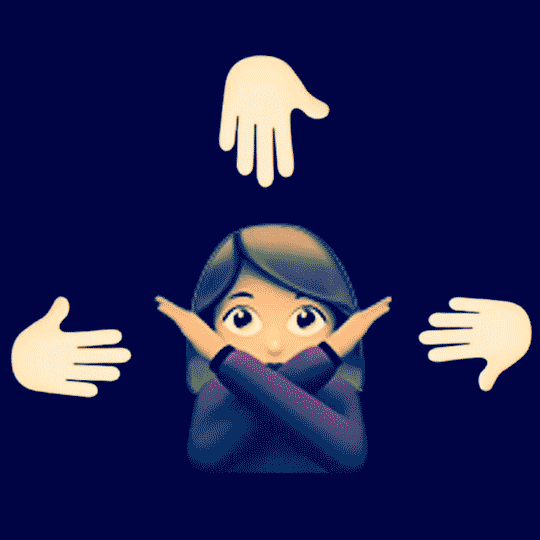The Rising Tide of #MeToo
It was a bombshell.
Not just because it had been thoroughly researched for months by New York Times reporters Jodi Kantor working with Megan Twohey. But because the paper's credibility and support for its reporters would shed light on a cultural problem that had reached one of the most powerful men in the entertainment business.
The report described how Hollywood producer Harvey Weinstein had allegedly paid off sexual harassment accusers for decades. Up until then, Weinstein been one of the most successful Hollywood producers in recent history. Through Miramax, he distributed and picked up films in the American independent circuit that became cultural phenomena, such as "Pulp Fiction" and "Clerks". He would later add major films to his credit, such as Best Picture Winner "Shakespeare in Love" and Martin Scorsese's "Gangs of New York" from his position at the Weinstein Company.
Harvey Weinstein speaks on stage after "Shakespeare in Love" won the Oscar for Best Picture.
Just to give the reader an idea of his impact, according to a Vocative analysis, Weinstein has been thanked more times than God at the Oscars, second only to Steven Spielberg.
The ripples of the report were felt across the industry and by October 12th, four women had come out publicly, including "Charmed" actress Rose McGowan.
Weinstein was then expelled from the Academy of Motion Picture Arts and Sciences. The Board, which includes 54 members, issued the following statement:
"The Academy of Motion Picture Arts and Sciences Board of Governors met today to discuss the allegations against Harvey Weinstein, and has voted well in excess of the required two-thirds majority to immediately expel him from the Academy. We do so not simply to separate ourselves from someone who does not merit the respect of his colleagues but also to send a message that the era of willful ignorance and shameful complicity in sexually predatory behavior and workplace harassment in our industry is over. What's at issue here is a deeply troubling problem that has no place in our society. The Board continues to work to establish ethical standards of conduct that all Academy members will be expected to exemplify."
Then, on October 15th, actor Alyssa Milano would take to Twitter and mark the decisive moment that the #MeToo hashtag broke the internet, where she called upon those who have been sexually harassed or assaulted, to reply.
In just 24 hours, the #MeToo hashtag had engaged 4.7 million people on Facebook.
By October 19th, the Los Angeles Police department confirmed an investigation from an incident in 2013 involving Weinstein.
These developments prompted a number of female voices to come out and detail their experiences. Writing for The New Yorker, "Breakfast Club" actress Molly Ringwald explained that: "Women are shamed, told they are uptight, nasty, bitter, can’t take a joke, are too sensitive. And the men? Well, if they’re lucky, they might get elected President."
A-listers Gwyneth Paltrow and Angelina Jolie also spoke out against Weinstein. Kate Winslet told the Los Angeles Times that her omission of Weinstein’s name at the Oscars when she won for best actress was "deliberate". And Academy Award Winner Lupita Nyong’o, best known for her role in "12 Years a Slave" wrote an Op-ed for the New York Times breaking what she described what was a "conspiracy of silence".
However, the silence that was broken was not reduced to cases involving Weinstein.
Major players in the entertainment industry also spoke out and shared their experiences, including Jennifer Lawrence and Reese Witherspoon. Even in the sports world, Olympic Gold medalist and gymnast McKayla Maroney used Twitter to share a one-page statement detailing her experience.
Men joined in as well, including "Dawson's Creek" star James Van Der Beek and "Expendables" action hero and Old Spice commercials star Terry Crews.
"Reporting protects women"
In an interview Quentin Tarantino gave Kantor for the New York Times, he said: "I chalked it up to a ’50s-’60s era image of a boss chasing a secretary around the desk. As if that’s O.K. That’s the egg on my face right now."
Last year, Bernardo Bertolucci suggested that the infamous sodomy scene in the 1972 film "The Last Tango in Paris" may not have been consensual. The reaction was also, justifiably, outrage.
More recently, The New York Times uncovered a major settlement Fox News made with its former news commentator Bill O'Reilly.
And let's not forget the leaked audio of now President Trump bragging about groping women and being able to "get away with it" because "when you're famous they let you do it".
Moreover, allegations such as the ones former Fox News host Gretchen Carlson made against then Fox News boss, the late Roger Ailes, prompted the company to hire a new Human Resources chief, suggesting the company's HR department was ill-equipped to deal with a major issue in its internal culture.
Editorial
We would like to highlight the point made by The New Yorker's Emily Nussbaum when she asserts that the world is "dominated" by men, some of which repeatedly engage in predatory behavior.
If it wasn't enough of a pressing matter before, it is now crucial to strengthen the cultural debate stressing the importance of seeking consent prior to having sex.
After all, consent is a conversation and disagreements should not lead to intimidation, retaliation or assault. This is especially true in the workplace, when a majority of cases involve a man in a position of greater power than a woman, and this power is exercised with the intent to keep it that way.
There are no "come rape me" clothes. There should not be a "she knew what she was getting into" approach to the film industry or a normalization of "casting couch" behavior. This is a cultural problem. And we should not kid ourselves. It is a disproportionate problem in the attitude men have towards women in their culture and the workplace.
If the collective evisceration of Harvey Weinstein’s behavior is what the overall discussion on sexual harassment needs, so be it. Much like pulling down a strongman’s statue in spontaneous revolt, the #MeToo tidal wave is long overdue as a way to break a silence maintained for too long.
At the same time, we write this as men, albeit ones that try to make a conscious attempt to recognize toxic masculinity as an overall symptom of stubborn patriarchies we’re only beginning to chip away at.
We came of age in what is still a sexist society, no matter how much we tell ourselves we’re better than most. Even in affluent, democratic countries, there is a long way to go in terms of regard for women as individuals, not “wives and daughters.” It is pointless to argue the degree to which each person shares the blame, because we all have been complicit in ways that are invisible or unfathomable to many of us.
But we also owe women the honesty to come clean and say so, and assure you that we, as men, hear you and believe you, because it is imperative that we do better. We must do better not only in our family life, but in our kindergartens, schools, workplaces and community groups; in our conversations, judgments and perceptions of behaviors we tend to take for granted.
This is not about sanctimonious moralizing. It’s about empathy, respect, and shining a light on structures that perpetuate sexual harassment and brazen abuses of power. And the first step is to acknowledge and process everything affected women (and men) are saying, as opposed to downplaying, delegitimizing or dismissing widespread accounts of non-consensual actions.
It is a daunting task to change attitudes at such a scale, and make society less oblivious to harm in the customary and the normalized. Which is why anyone who experiences such inappropriate conduct must make themselves heard no matter what, reminding us that this is about twisting obstinate arms as well.
We must welcome the fact that old habits are dying hard, that the boundaries of socially acceptable behavior are perpetually changing, and that this push gives way to something else.
Many of us are with you, and join your call to make your voices heard and taken seriously, because calls for human dignity should never be reduced to mere rumours or negligible allegations.
Silence is what keeps those in power being able to get away with what they do. Only by shedding a light on these experiences of past and present transgressions can we address our cultural and patriarchal pathologies.
Don’t let anyone hold you back.






